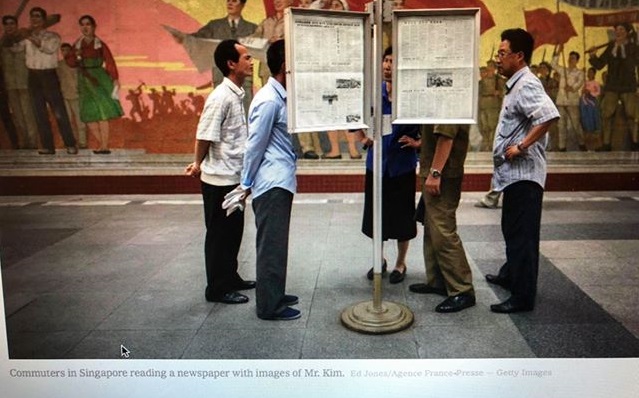The Trump-Kim summit is done and dusted.
Singapore played host to what is arguably one of the most historic meetings in modern history. We spent $20 million on it and had our moment in the spotlight. The Straits Times even reported that analysts estimate that the event brought over $700 million worth of exposure.
But it was also a good sobering wake-up call for Singaporeans — that in the eyes of the world, we are rather insignificant. Don't get me wrong, many foreign governments and businesses know our reputation to be a clean, safe, and efficiently-run country.
But for the rest of the world's population, the Trump-Kim summit may be the very first time they've even heard of the country Singapore.
"Where is Singapore"
Following Trump's announcement that a summit will be held with Kim Jong-un in Singapore, Americans turned to Google to figure out where Singapore was located.
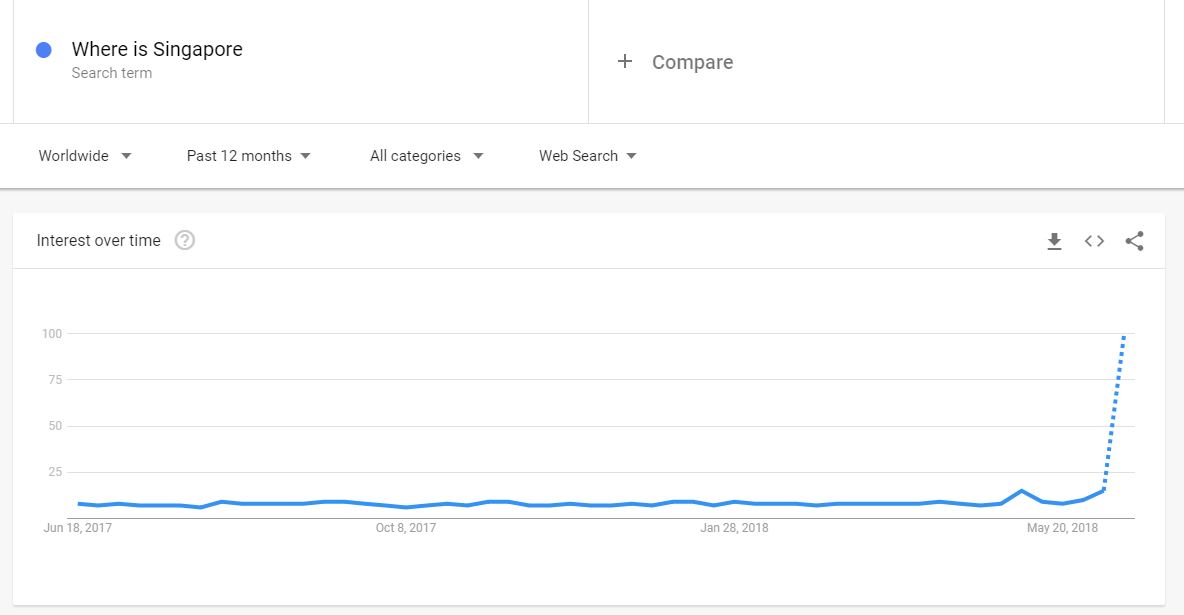
From Google Trends, you can see that the world only started gaining interest about our little Red Dot following Trump's announcement of the summit venue.
[related_story]
Compare it with a "Where is the United States" search:
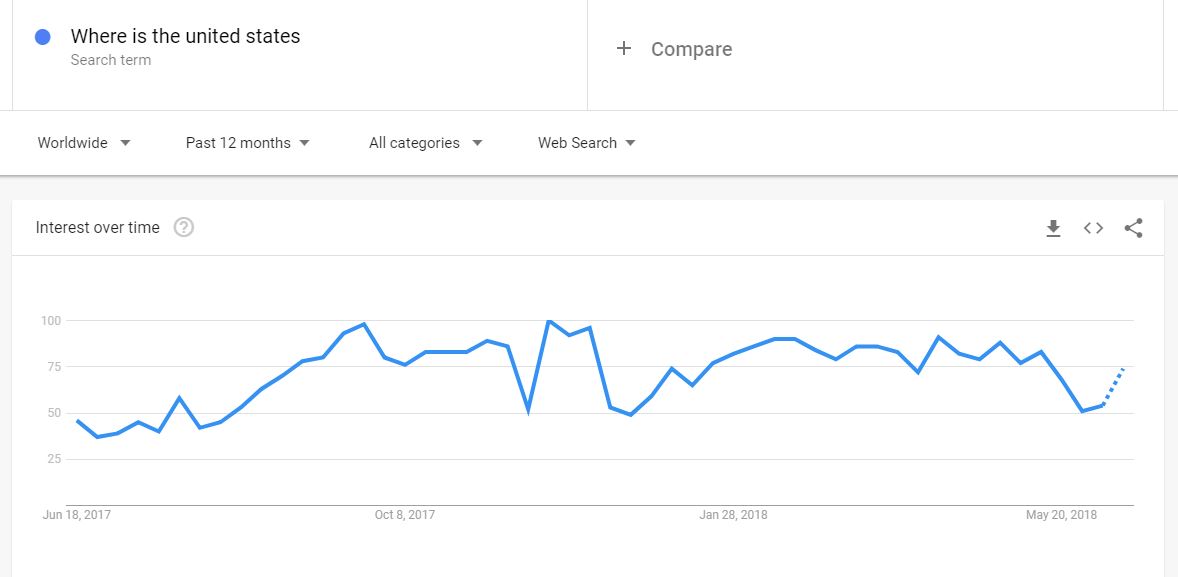
Even something as painfully obvious as the location of the United States receives way more interest day-to-day compared to Singapore. This puts things in perspective.
Media gaffe after media gaffe
You would think big media organisations will be filled with knowledgeable reporters. Or at least reporters who would double check what they churn out.
And then you get this from the BBC:
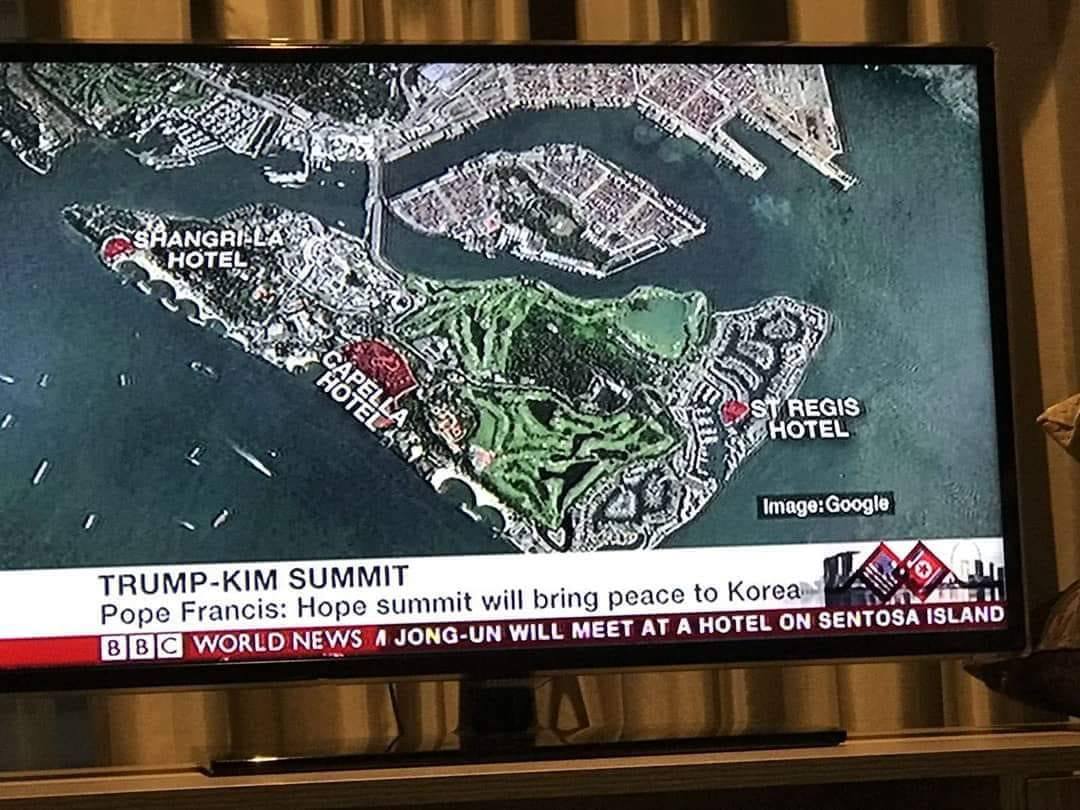 Image circulating on WhatsApp
Image circulating on WhatsApp
It's amazing because whoever produced this graphic made a very conscious effort to plot out the imaginary locations of both Shangri-La and St Regis on Sentosa. Who knows how many pairs of eyes saw this graphic before it went live.
Can't count on our ex-colonial masters to recognise the island they once governed.
And then there's the Associated Press's butchering of the pronunciation of Lee Hsien Loong's name.
Granted, Chinese names aren't solely used by Singapore, but it's yet another demonstration of how people can be quite ignorant of our lived reality.
And if that's not enough, check out this other gaffe — this time by the New York Times:
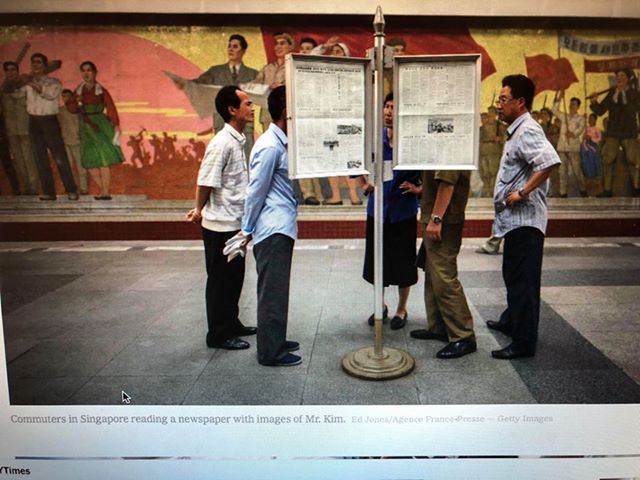 Photo of screen displaying NYT article
Photo of screen displaying NYT article
And then there's the U.S.' State Department, who for some reason didn't get the memo about our 1965 separation:
These examples show that despite having a world renowned airport and airline, and having one of the world's busiest ports, Singapore is still unfamiliar to many people, including media professionals and government officials.
But should we expect them to know?
The truth is we cannot expect everybody to have great general knowledge about the world. For all the times Singaporeans praise Scandinavian countries for their standard of living, you could ask the same Singaporean to pinpoint the exact location of Norway or Finland and they are likely to get it wrong. What more asking the world to know exactly what the Little Red Dot is all about?
The question to ask is this: Do we accept that getting the world to know more about Singapore is a lost cause, or do we try to bang our drums hard (and spend money) even if results are not guaranteed?
Top photo taken of screen showing New York Times article
If you like what you read, follow us on Facebook, Instagram, Twitter and Telegram to get the latest updates.
